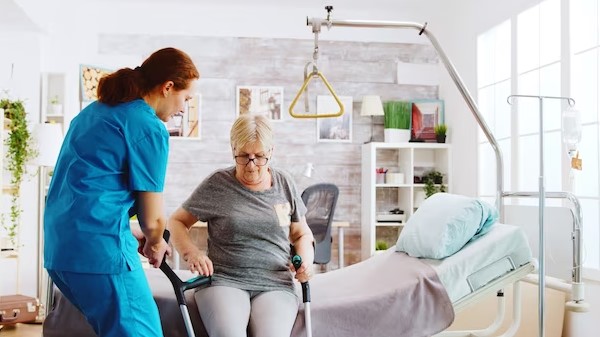Nursing practice is a dynamic and constantly evolving field shaped by the influences of modern culture and technology. As healthcare continues to develop and change, nurses’ role has become even more vital in providing high-quality care to patients. To remain abreast of technological advances and cultural shifts in medicine, nurses must stay up to date on modern culture’s impact on nursing practice. Today, we will examine how modern culture has affected nursing practice and how nurses can continue developing the necessary skill sets to provide exceptional care to their patients.
The Impact of Technology on Nursing Practice
Modern culture has profoundly shaped nursing practice through the advancement of technology. In the past, nurses relied on manual processes and traditional methods for their tasks; however, today, technology has revolutionized how nurses provide care. From electronic medical records (EMRs) to telehealth services, technology has transformed how nurses interact with patients and fulfill their responsibilities.
Electronic medical records make it simpler for nurses to access and update patient information, decreasing the risk of errors and improving quality care. Telehealth also allows patients to receive care from home, reducing the need for in-person visits and making for more efficient, convenient treatment.
To meet the changing needs of patient populations, all nurses should keep their professional skills and knowledge up-to-date by learning about advances in technology and medicine and developing a deeper understanding of cultural differences.
The Impact of Cultural Diversity on Nursing Practice
Another significant influence of modern culture on nursing practice is the growing diversity of patient populations. With globalization’s rise, nurses are more likely to care for individuals from diverse cultural backgrounds with their own beliefs, values, and customs.
Nurses must be culturally sensitive and knowledgeable about their patients’ cultural differences to provide the best care. They should comprehend how cultural beliefs and practices influence health behaviors so that they may provide culturally appropriate and respectful care.
Some cultures may prefer traditional healing practices, such as herbal remedies, over conventional medical treatments. Nurses must be aware of these beliefs and be able to incorporate them into their care while still guaranteeing patients receive the best possible medical attention.
Patient-Centered Care and Empowerment
Modern culture is increasingly shaping nursing practice by emphasizing patient-centered care and empowerment. Nurses are encouraged to collaborate with their patients, giving them more control over their care and treatment. By empowering patients, nurses can encourage them to take a proactive role in their well-being, leading to improved outcomes while promoting long-term health.
Many nursing programs stress the importance of patient-centered care and empowerment to achieve this goal. For instance, nursing students typically learn how to collaborate with patients, listen attentively to their worries and needs and assist them in making informed decisions regarding their healthcare.
Developing Cultural Competence in Nursing Practice
Nurses must develop cultural competence, or the capacity to understand and respect cultural differences among their patients. This can be accomplished through formal education, training, and hands-on experience working with people from various cultural backgrounds.

The University of Indianapolis offers a Distance Second-Degree Accelerated Bachelor of Science in Nursing (ABSN) program to prepare individuals who possess a Bachelor of Science in another field to become registered nurses and give them the education and training needed to be successful in their careers.
Skills Gained in an ABSN Program
The ABSN program at the University of Indianapolis offers students an intensive education in nursing, featuring cutting-edge technology and cultural competency. By completing this program, students will acquire a range of skills and knowledge, such as:
- Understanding of cultural diversity and its effects on nursing practice.
- Knowledge of patient-centered care and how to provide it with cultural competence.
- Ability to utilize technology, such as electronic medical records (EMRs) or telehealth services, to improve patient care.
- Strong communication abilities to effectively interact with patients and healthcare professionals.
- Critical thinking and problem-solving abilities to make informed decisions and provide high-quality care.
Conclusion
Modern culture has profoundly affected nursing practice, altering how nurses provide care to their patients and equipping them with the necessary skillset for success in their nursing careers. With technology’s influence over care delivery to an increasingly diverse patient population, nurses must stay abreast of developments while developing their abilities to provide the highest level of service possible.
As the healthcare industry continues to develop and change, nurses must be able to adapt to modern culture to provide their patients with the highest-quality, culturally competent care. Through education and training programs, nurses can develop these skills and knowledge to meet the demands of a diverse patient population.




